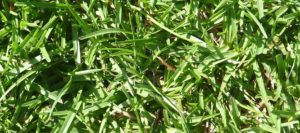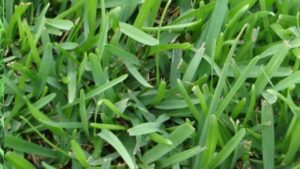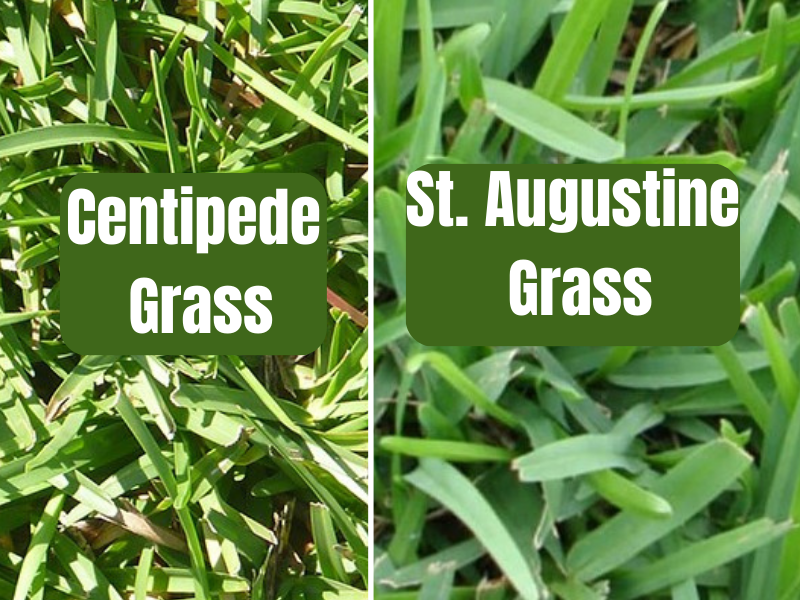The right kind of grass must be chosen if you want a lush, green lawn. Two of the most popular warm-season grasses in the Southeast of the United States are centipede grass and St. Augustine grass. Because each has unique qualities and benefits of its own, you must be aware of how the two differ to select the best one for your lawn. In this article, we’ll look more closely at centipede grass and St. Augustine grass, as well as their advantages and disadvantages, to assist you in deciding which is best for your lawn.
Centipede Grass

- Centipede grass requires little maintenance and is simple to grow and maintain.
- It is a great option for homeowners who want a weed-free lawn because of its natural ability to choke out weeds and other unwelcome plants.
- Centipede grass can withstand drought conditions, making it a great option for homeowners in regions that frequently experience drought.
- Centipede grass has a low nitrogen requirement, making it a great choice for homeowners who want to reduce their fertilizer use.
- Centipede grass is a great option for lawns that must have a tidy and uniform appearance because of its light green color and fine texture.
St. Augustine grass

- For those who want a thick, lush lawn, homeowners frequently choose St. Augustine grass.
- It is a great option for lawns that are prone to thinning or bare patches because of its reputation for growing quickly and filling in bare spots.
- St. Augustine grass is a fantastic option for homeowners who live close to the coast or in areas with lots of trees because it can withstand salt spray and shade.
- St. Augustine grass is a fantastic option for lawns that must have a striking and vibrant appearance due to its dark green color and coarse texture.
- St. Augustine grass is a demanding grass that needs routine watering, fertilization, and mowing.
Advantages and Disadvantages of Centipede Grass
Advantages
- Centipede grass is a fantastic option for homeowners who want a low-maintenance lawn because it is simple to grow and maintain.
- It is tolerant of drought, making it a great option for homeowners who reside in regions that frequently experience dry spells.
- Due to its low nitrogen requirement, centipede grass can be grown without fertilizer, saving homeowners money on lawn maintenance.
Disadvantages
- Since centipede grass grows slowly, it is challenging to establish it and cover up bare spots.
- It is crucial to keep track of the soil pH and nutrient levels because it is vulnerable to iron deficiency and sensitive to high-pH soils.
- Centipede grass is a bad choice for high-traffic areas because it does not tolerate heavy foot traffic as well as other grasses do.
Advantages and Disadvantages of St. Augustine Grass
Advantages
- St. Augustine grass is a fantastic option for coastal areas and shaded lawns because of its high tolerance for salt spray and shade.
- It grows quickly and can quickly fill in bare spots to produce a thick, lush lawn.
- St. Augustine grass gives lawns a bold and vibrant appearance with its deep green color and coarse texture.
Disadvantages
- Regular maintenance for St. Augustine grass includes frequent mowing, fertilization, and watering.
- It can become afflicted with diseases and pest issues like chinch bugs and gray leaf spot, which can harm the lawn.
- St. Augustine grass is a bad choice for regions with cold winters because it is sensitive to cold temperatures and can be harmed by frost.
Which Grass is Right for Your Lawn?
Climate
The climate in your area is one of the most crucial things to take into account when deciding between centipede grass and St. Augustine grass. Centipede grass thrives in hot, humid climates like those in the Southeast of the United States. It is a fantastic option for regions with mild winters because it can withstand drought conditions and is relatively cold-tolerant. On the other hand, St. Augustine grass is more suited to regions with hot, muggy summers and mild winters, like those along the Gulf Coast. It is a poor choice for regions with harsh winters because it is susceptible to cold damage and is not as drought-tolerant as centipede grass.
Maintenance
The level of upkeep required for each grass is a crucial factor to take into account. In comparison to St. Augustine grass, centipede grass requires less watering, mowing, and fertilizing. Additionally, it requires fewer chemical treatments because it is less vulnerable to disease and pest issues. On the other hand, St. Augustine grass requires frequent watering, fertilization, and cutting to keep its lush appearance. It is also more susceptible to disease and pest problems, requiring more chemical treatments to keep it healthy.
Appearance
Another crucial aspect to take into account is the appearance of your lawn. The light green color and fine texture of centipede grass give it a uniform and orderly appearance. For lawns that must have a tidy, manicured appearance, it is ideal. The dark green color and coarse texture of St. Augustine grass, on the other hand, give it a striking appearance. It is ideal for lawns that have to look lush and dense.
Conclusion
Your lawn’s appearance and health can be significantly affected by the type of grass you choose for it. Both centipede grass and St. Augustine grass have distinctive qualities and advantages of their own, so it’s critical to pick the best one for your particular requirements. To choose the right grass for your lawn, take into account elements like climate, upkeep requirements, and appearance. Making the right decision will allow you to enjoy a lush, healthy lawn for many years to come.
It can be challenging to choose between centipede grass and St. Augustine grass when selecting the right type of grass for your lawn. It is crucial to take into account your particular requirements and the environment in which your lawn is located because each type of grass has its distinct qualities and advantages.


This is the right blog for everyone who wants to find out about this topic. You understand so much its almost hard to argue with you (not that I personally would want toÖHaHa). You certainly put a new spin on a topic thats been written about for decades. Wonderful stuff, just great!